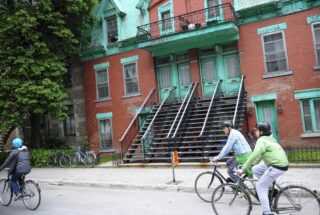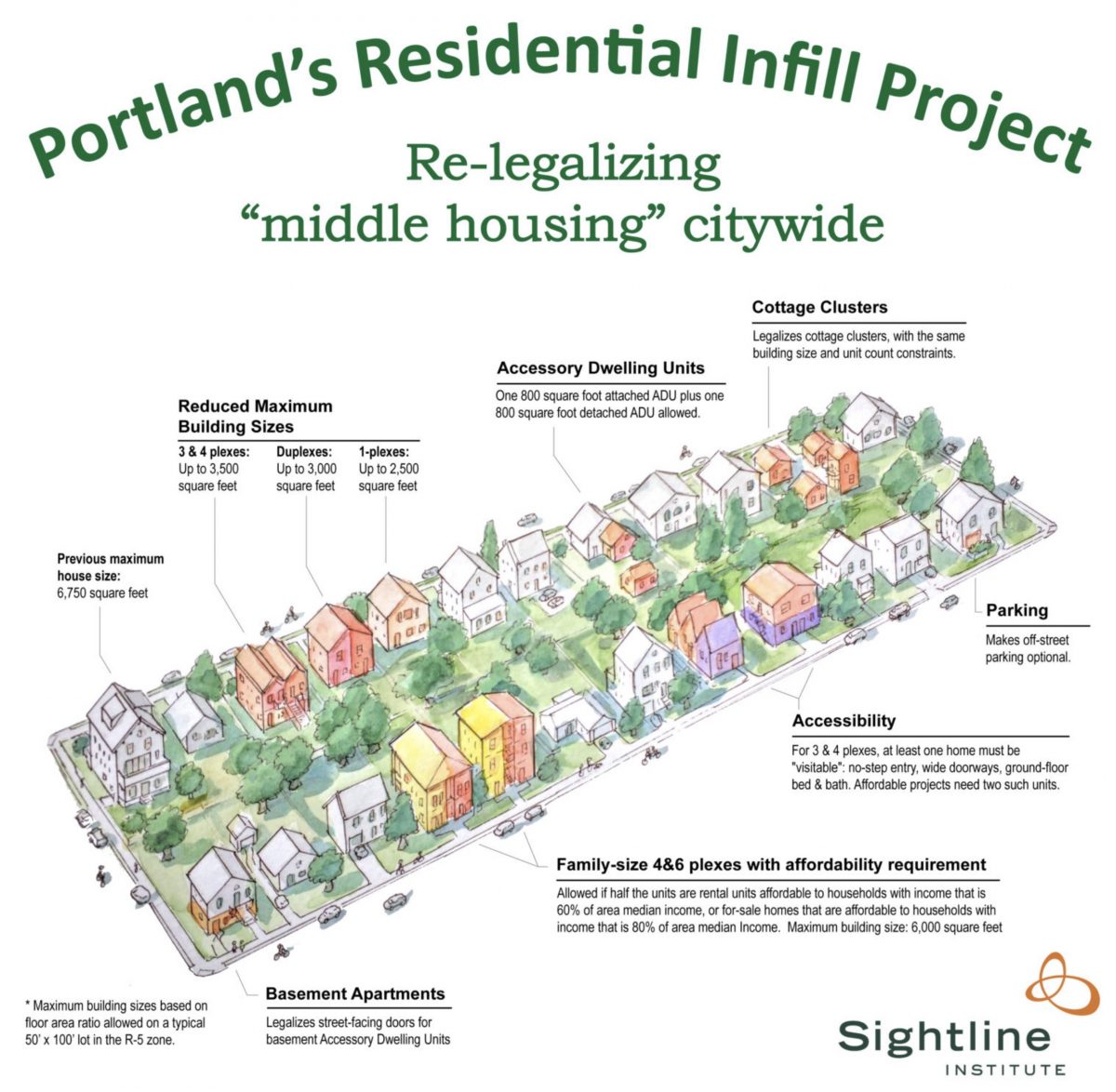
(Photo: Jonathan Maus/BikePortland)
How we build housing in our cities is directly linked to whether or not people will bike in them. As we’ve been saying around here for years, proximity is key to a bike-friendly future and housing policy and biking are closely intertwined.
That’s why the package of policies passed by Portland City Council this morning are so monumental.
By a vote of 3-1, Portland approved the Residential Infill Project after five grueling years of process. The Sightline Institute called it, “The most pro-housing reform to low-density zones in US history.”
Veteran BikePortland readers might recall a guest post we published in early 2015 from a local developer who saw the writing on the wall and called for, “Regulatory changes that would support traditional neighborhoods and simultaneously open the door for the creation of market-based affordable housing.”
Advertisement

The RIP will allow more cottages, accessory dwelling units (ADUs), triplexes, fourplexes and other types of “missing middle” housing on existing residential lots. This will increase supply of housing and offer more — and more affordable — places to live that are closer to where most jobs and destinations are.
The ordinance passed today also includes a mandate to remove on-site parking requirements from more than 60% of Portland’s residential land. It also makes the construction of driveways optional. Currently even if a homeowner is carfree and/or plans to park on the street, city code requires a paved driveway to be built. This not only adds to the cost of the housing it takes up precious square footage that could be used for people instead of cars.
By allowing more types of dense housing in places currently zoned as single-family, RIP also helps us begin to reverse the racist exclusionary zoning laws that have hurt people of color for generations.
At council today, Commissioner Amanda Fritz railed against the RIP project. She repeated “The earth is on fire!” and issued dire warnings about how the construction of more housing on suburban lots far from essential services will increase driving and greenhouse gas emissions. She also expressed concerns that the new policies would enrich developers and hasten gentrification and displacement.
To learn more about RIP and what today’s vote means for Portland, read the statement from housing advocacy group Portland Neighbors Welcome and the excellent explainer from Sightline.org.
— Jonathan Maus: (503) 706-8804, @jonathan_maus on Twitter and jonathan@bikeportland.org
— Get our headlines delivered to your inbox.
— Support this independent community media outlet with a one-time contribution or monthly subscription.

